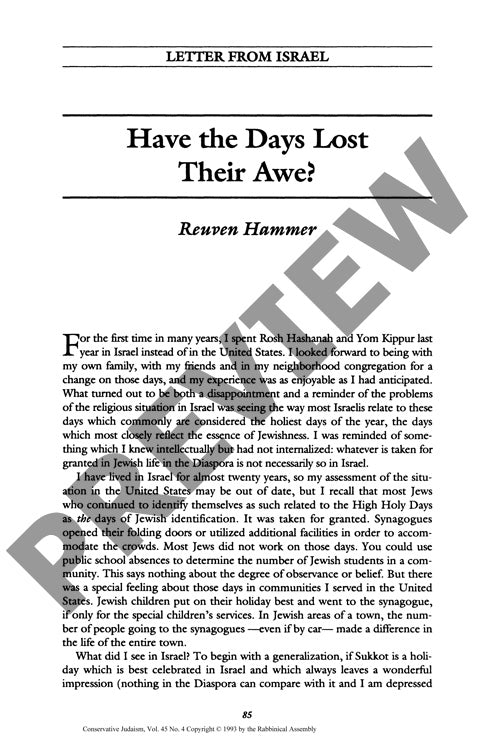Have the Days Lost Their Awe Letter From
Couldn't load pickup availability
This ethnographic study examines the contemporary observance of the Jewish High Holy Days (Rosh Hashanah and Yom Kippur) in Israel through comparative analysis with Diaspora Jewish communities. Based on personal observation and cultural assessment, the author investigates how Israeli society relates to what are traditionally considered the holiest days of the Jewish calendar. The methodology employs participant observation and cultural comparison, drawing on the author's twenty years of residence in Israel and prior experience serving Jewish communities in the United States. The findings reveal a significant disconnect between Israeli secular society and the Days of Awe, with the majority of Israelis treating Rosh Hashanah as a leisure holiday spent at beaches and recreational activities rather than in synagogues. While Yom Kippur maintains some traditional observance through business closures and fasting, it has increasingly become characterized as "the video holiday" or "bicycle holiday." The study identifies the polarization between Orthodox religious establishment and secular society as a primary factor contributing to this phenomenon. The author concludes that this trend represents a critical challenge for non-Orthodox Jewish movements in Israel and raises fundamental questions about the preservation of Jewish spiritual heritage in contemporary Israeli society.

More Information
-
Physical Description
-
Publication Information
Published 1993
ISBN
-
Publication Credits
Reuven Hammer

